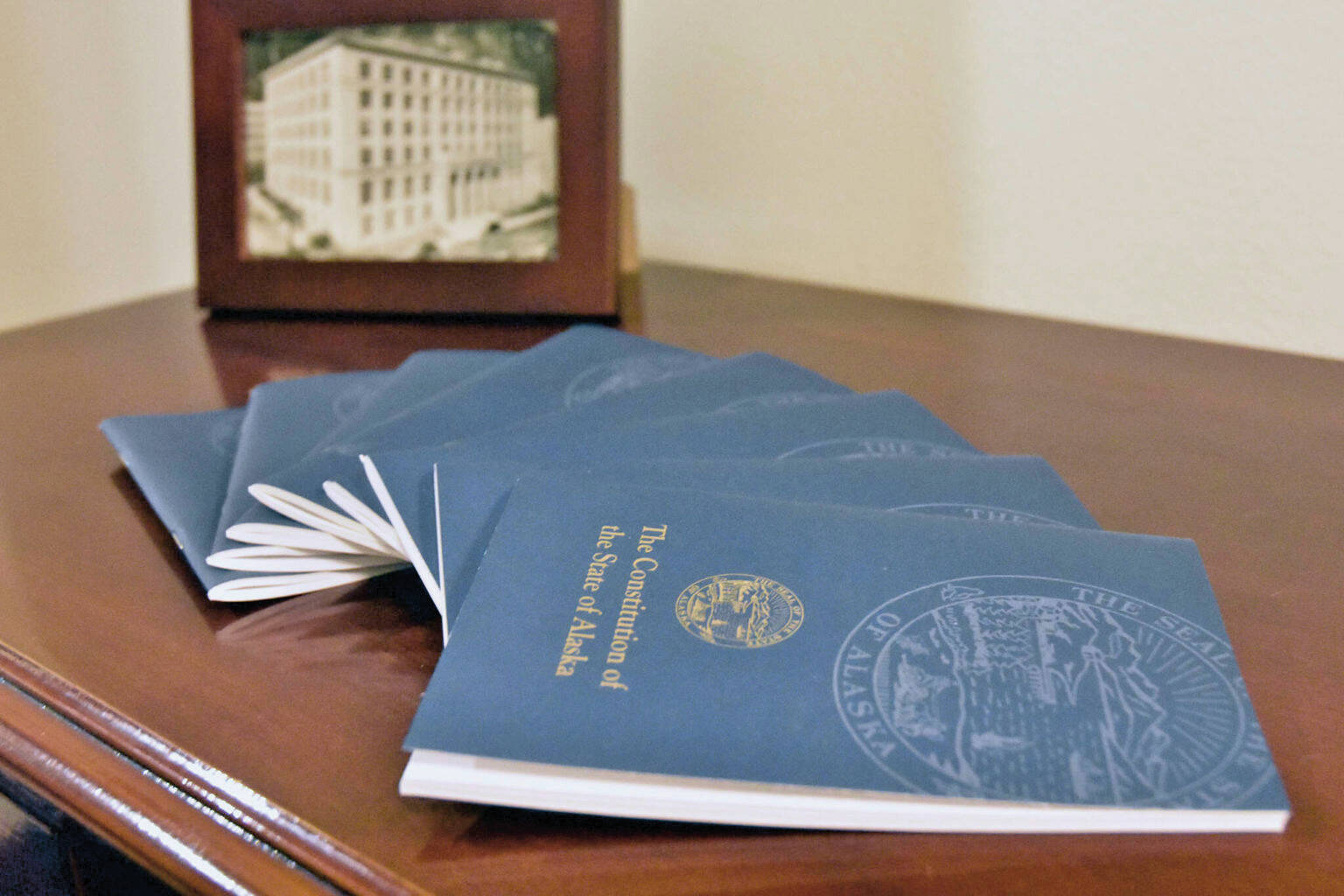By Win Gruening
In 1972 and four times since, Alaska voters were presented with the question “Shall there be a Constitutional Convention?” Each time, voters have declined the invitation. In 2002 and 2012, voters turned it down by a 2-1 margin or greater.
On November 8, 2022, voters will once again be asked to answer the question.
The purpose of a constitutional convention seems quite straight-forward but its impact could be far-reaching and potentially lead to unintended consequences.
Fortunately, there is an alternative.
Alaska is one of 14 states requiring a mandatory vote on this question periodically. The Alaska Constitution calls for the question to be automatically placed on the ballot every 10 years, but it’s only recently that the prospect of a convention has been taken seriously.
There are a number of reasons for this but the primary cause is voter frustration with persistent partisan gridlock in our Legislature.
For many, a constitutional convention is seen as a way to settle questions surrounding the Alaska Permanent Fund. How the permanent fund should be used, including the dividend formulation and which government services it could support, is often promoted as a reason to hold a convention. But there’s no guarantee that agreement could be reached or that discussion would be limited to that one issue. Indeed, judicial appointments, statewide taxes, and abortion are also cited as likely topics.
Even more radical changes could be adopted. One proposal would change Alaska’s municipal governments to five-member county boards with an elected sheriff and an appointed state senator. Other politically divisive issues such as school choice and subsistence rights could be raised.
The convention process involves three separate public votes. The first is whether to call a convention, the second is to elect convention delegates and then a final vote is taken on whether to approve any constitutional amendments. This entire process could take as long as four years.
During this time, Alaskans and businesses would be in limbo as taxes, environmental regulations, education and more could be subject to change and create years of economic, legal and regulatory uncertainty.
It’s questionable that a constitutional convention would accomplish what promoters claim — especially in Alaska where the guidelines and timelines for selecting delegates and proposing and approving amendments are unique.
Alaska’s Constitution states: “ … delegates to the convention shall be chosen at the next regular statewide election, unless the legislature provides for the election of the delegates at a special election. The lieutenant governor shall issue the call for the convention. Unless other provisions have been made by law, the call shall conform as nearly as possible to the act calling the Alaska Constitutional Convention of 1955, including, but not limited to, number of members, districts, election and certification of delegates.”
Proponents frame the arguments for a convention as a way to bypass the Legislature and let the “people” finally have their say. Yet, the delegates to such a convention, in most cases, will be the currently elected representatives from voters’ districts. Legislators would be expected to run as delegates from their district to the convention. They have campaign staffs, name recognition, and popular support.
It doesn’t seem likely that a convention populated mostly by sitting legislators would be much different than what happens in every legislative session.
Alaskans could spend millions of dollars on an unnecessary, lengthy, and acrimonious process that could have been avoided.
Alternatively, as with 17 other states, Alaska allows constitutional amendments to be referred to a statewide ballot after a two-thirds vote in the state Legislature. If our constitution needs to be amended, this is a proven approach, having been used successfully 28 times since statehood. Unlike a convention, proposed changes are considered individually. An amendment would be researched, debated and vetted in a deliberative way without the political theater of a convention. Requiring a super-majority of legislators to approve a constitutional amendment for the ballot is a high bar — for a reason. Our constitution shouldn’t be changed without broad public support.
Our founding document has served us well since 1959. Extensive alterations are unnecessary and a constitutional convention is not the mechanism best suited to make incremental modifications.
• After retiring as the senior vice president in charge of business banking for Key Bank in Alaska, Win Gruening became a regular Opinion Page columnist for the Juneau Empire. He was born and raised in Juneau and graduated from the U.S. Air Force Academy in 1970. He is involved in various local and statewide organizations. Columns, My Turns and Letters to the Editor represent the view of the author, not the view of the Juneau Empire. Have something to say? Here’s how to submit a My Turn or letter.

